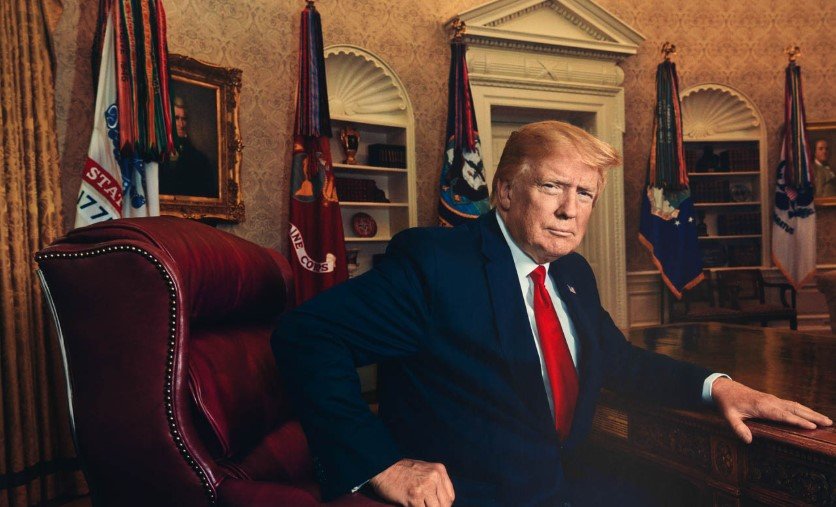Draft Order Targets JPMorgan, BofA Practices After Claims of Conservative “Debanking”
The Biden-era bank rules are being tossed out the window — and replaced with what insiders call one of the most personal executive actions of Donald Trump’s second presidency. The White House is preparing to go after big-name banks that allegedly dropped customers over their political views.
At the heart of it? Trump says he was one of them.
“They Didn’t Want My Money”: Trump’s Accusation Spurs Crackdown
After his first term ended in chaos and controversy, Trump claimed some of America’s most powerful banks wouldn’t even take his cash.
JPMorgan Chase and Bank of America, he said, refused to handle his accounts, forcing him to spread his personal and business funds across smaller regional lenders. He’s now turning those grievances into federal policy.
A draft executive order, expected to drop as soon as this week, will reportedly instruct regulators to examine whether banks have engaged in “politicized or unlawful debanking.” If approved, the order would let agencies slap fines or other penalties on banks found guilty.
One sentence from a White House source says it all: “You don’t get to discriminate against Americans just because you don’t like how they vote.”
No Comment From Banks, but Wall Street Is Uneasy
So far, the financial giants have kept their lips sealed. JPMorgan declined to comment. Bank of America didn’t respond. But the mood in lower Manhattan and Washington’s K Street banking circles? Pretty tense.
What’s raising eyebrows isn’t just the substance of the order—it’s the timing. Trump’s been back in office barely six months, and he’s already circling back to his private war with big institutions.
Here’s what’s driving that fear:
-
The Federal Reserve, under Trump’s direction, has already told supervisors to stop citing “reputational risk” when reviewing banks’ clients.
-
That phrase was often used by banks to justify pulling back from controversial figures or causes.
-
Now, banks fear any past decision to “drop” a politically active customer—left or right—could come back to haunt them.
“This could turn into a partisan purge,” said one regulatory consultant who advises several major banks. “It sends a message: Play ball with Trump—or pay the price.”

Personal Grudge or Policy Principle? Depends Who You Ask
Critics say this is classic Trump. A personal slight turns into a political weapon. Supporters argue it’s long overdue — that conservatives and right-leaning causes have quietly been squeezed out of financial services for years.
Peter Ricchiuti, a professor at Tulane University’s Freeman School of Business, sees it both ways. “While other moves reflect his own economic assessment, this seems to reflect his personal beefs,” he told Reuters.
That line — “personal beefs” — has been quoted across talk shows and business blogs.
But Trump loyalists inside the administration don’t shy away from the personal element. “If banks can shut down a former president’s account, what can they do to a farmer in Iowa who posted a pro-life meme?” said one staffer.
Not everyone’s convinced this is about fairness.
Is “Debanking” a Real Trend or Just Political Theater?
Outside the political bubble, data on politically motivated debanking is murky at best.
Financial institutions say they’ve pulled back from some clients due to legitimate compliance risks—fraud, money laundering red flags, foreign ties—not politics.
A 2023 GAO report found no statistically significant evidence of partisan account closures, but noted “perceptions of political bias” were increasing among conservative advocacy groups.
There have been isolated cases:
-
PayPal and GoFundMe have faced criticism for freezing accounts tied to controversial protests or causes.
-
In 2022, a Florida gun dealer said his business account was shut down by a major bank with no explanation.
-
Earlier this year, a pro-Palestinian campus organization reported Chase declined to open an account, citing “risk controls.”
But those examples remain anecdotal.
One former OCC lawyer put it plainly: “We don’t really have the data. But politically, it doesn’t matter. The perception is already baked in.”
The Order’s Potential Reach: Regulators Could Be Caught in the Middle
If the executive order moves forward, it will likely pull several regulatory agencies into the ring. Each could be tasked with reviewing bank behavior over the past several years — including during Trump’s time out of office.
Here’s a look at who could be affected:
| Agency | Potential Role Under Order |
|---|---|
| Federal Reserve | Adjust internal guidance to ignore reputational risk |
| OCC (Comptroller) | Enforce compliance checks on national banks |
| CFPB | Investigate consumer complaints of politically motivated closures |
| FDIC | Review state-chartered banks’ client rejection practices |
At least one official at the Consumer Financial Protection Bureau is already reviewing policy drafts, according to an internal memo seen by Reuters.
One sentence.
Industry Braces for Legal Challenges — and Maybe Public Backlash Too
Legal experts predict this order, if finalized, will face lawsuits from the banking industry. First Amendment concerns. Regulatory overreach. Potential violations of business discretion.
“This will go to court, guaranteed,” said Dan Awrey, a law professor at Cornell. “The government can’t just dictate who private firms do business with.”
Still, some in the banking world admit they saw this coming. “We’ve been preparing for a shift,” said a senior executive at a top-5 bank. “Just maybe not this… personal.”
There’s also fear the public might misread the move. Bank critics on the left already accuse institutions of favoring the wealthy and powerful. If they’re now forced to serve politicians they find toxic, trust in the industry could erode further.
And let’s not forget the election cycle isn’t far away. The order’s rollout—coincidentally or not—comes just ahead of the Republican National Convention. It’s already being packaged as a promise fulfilled.








